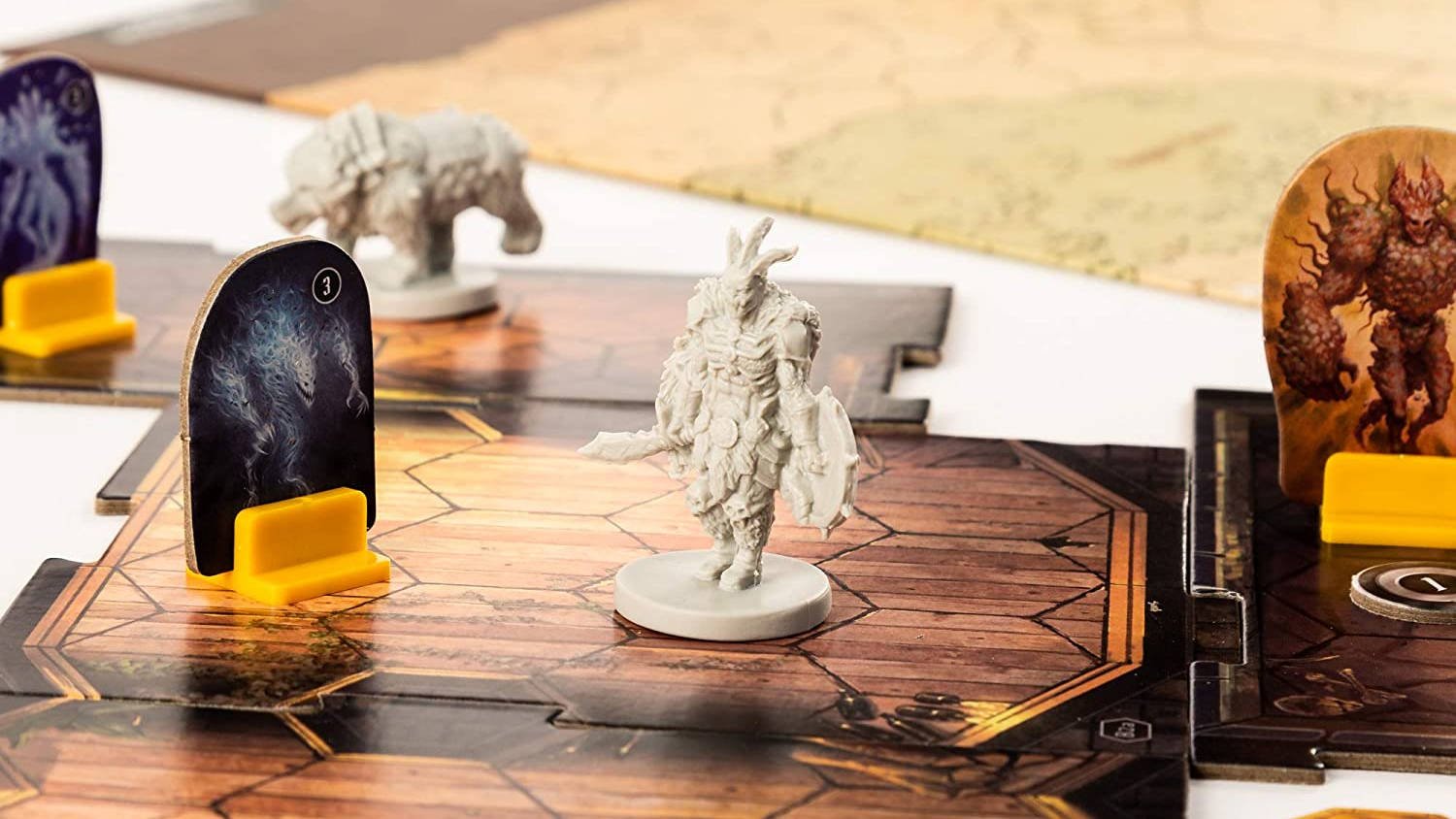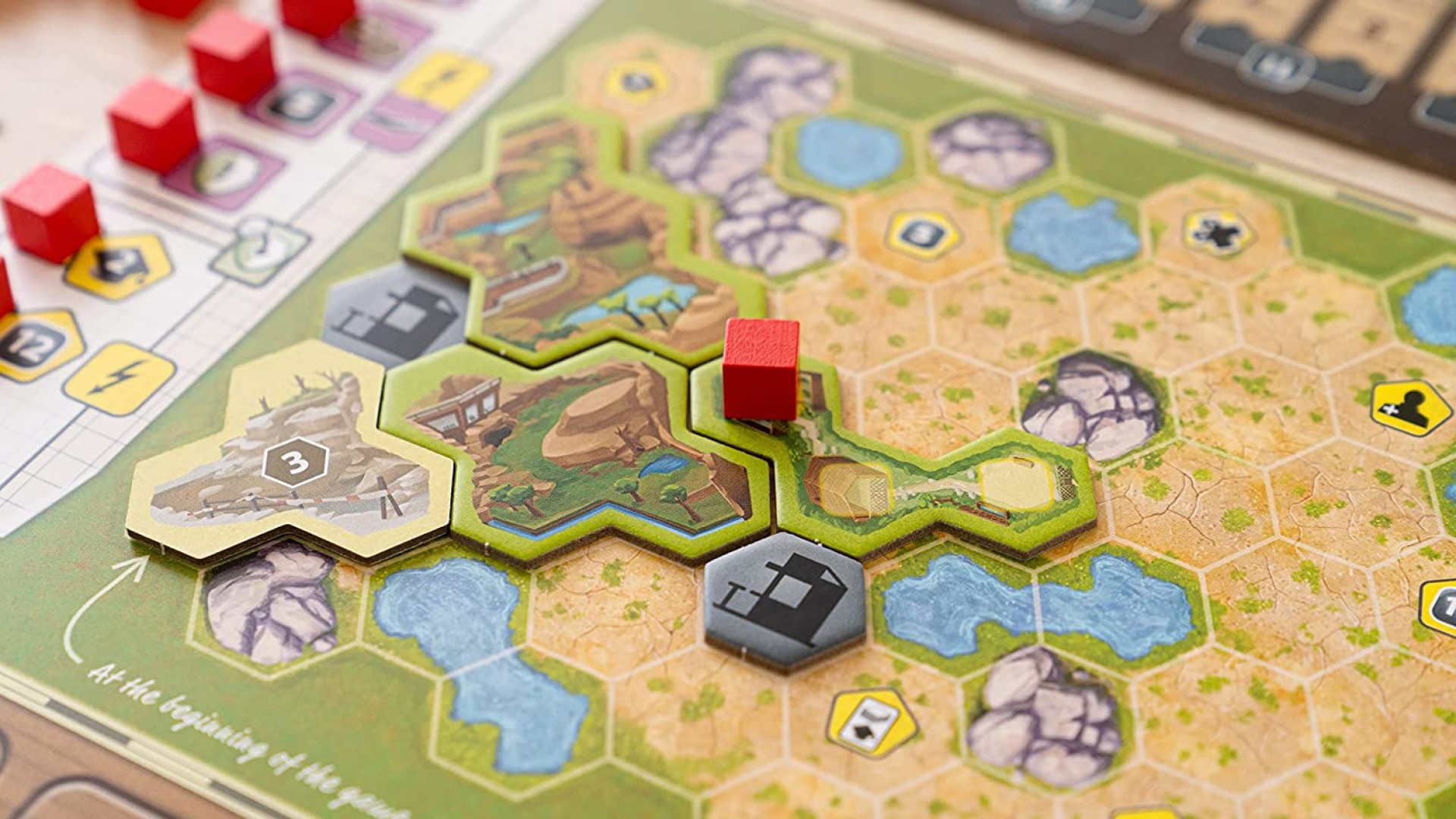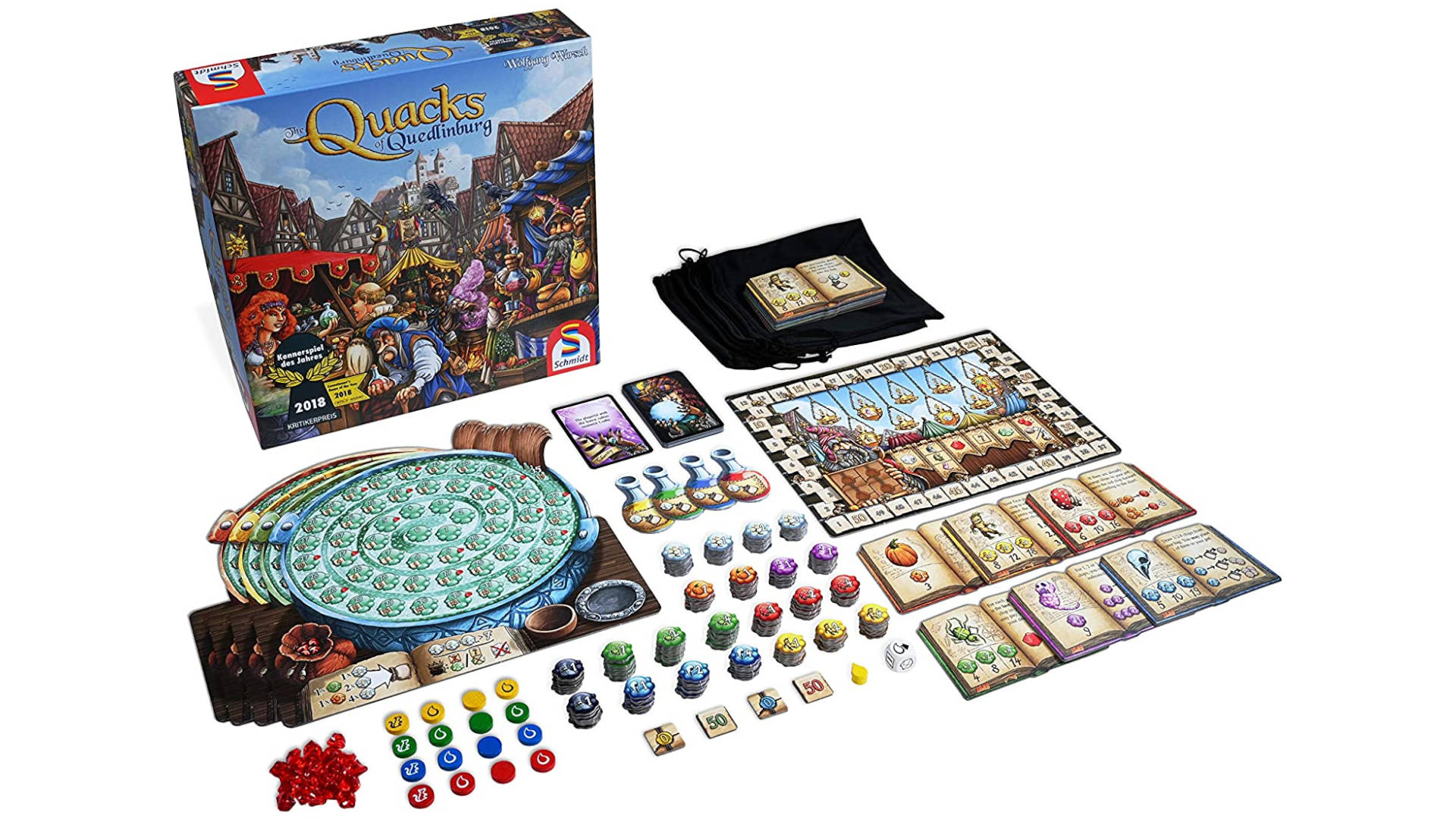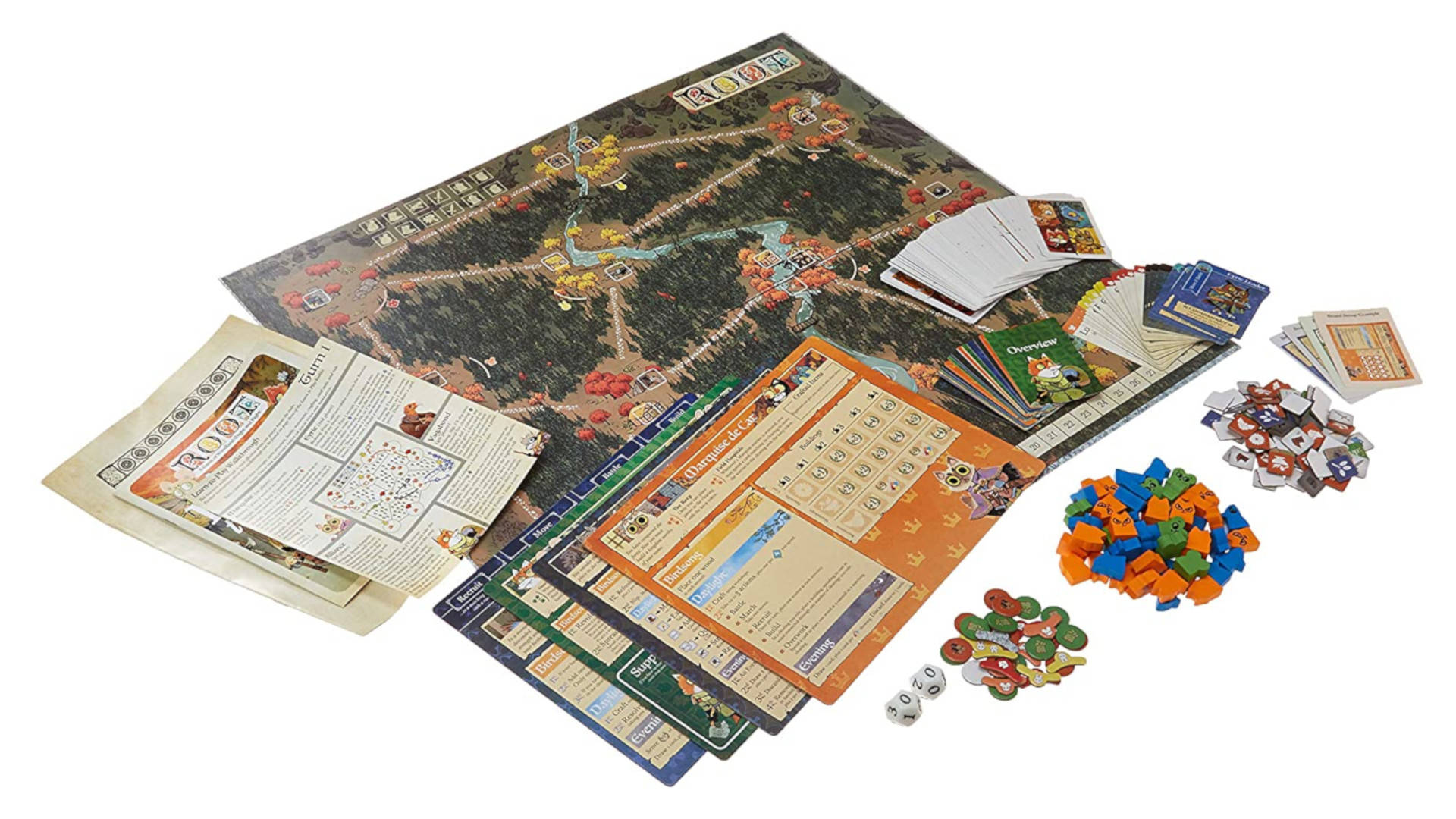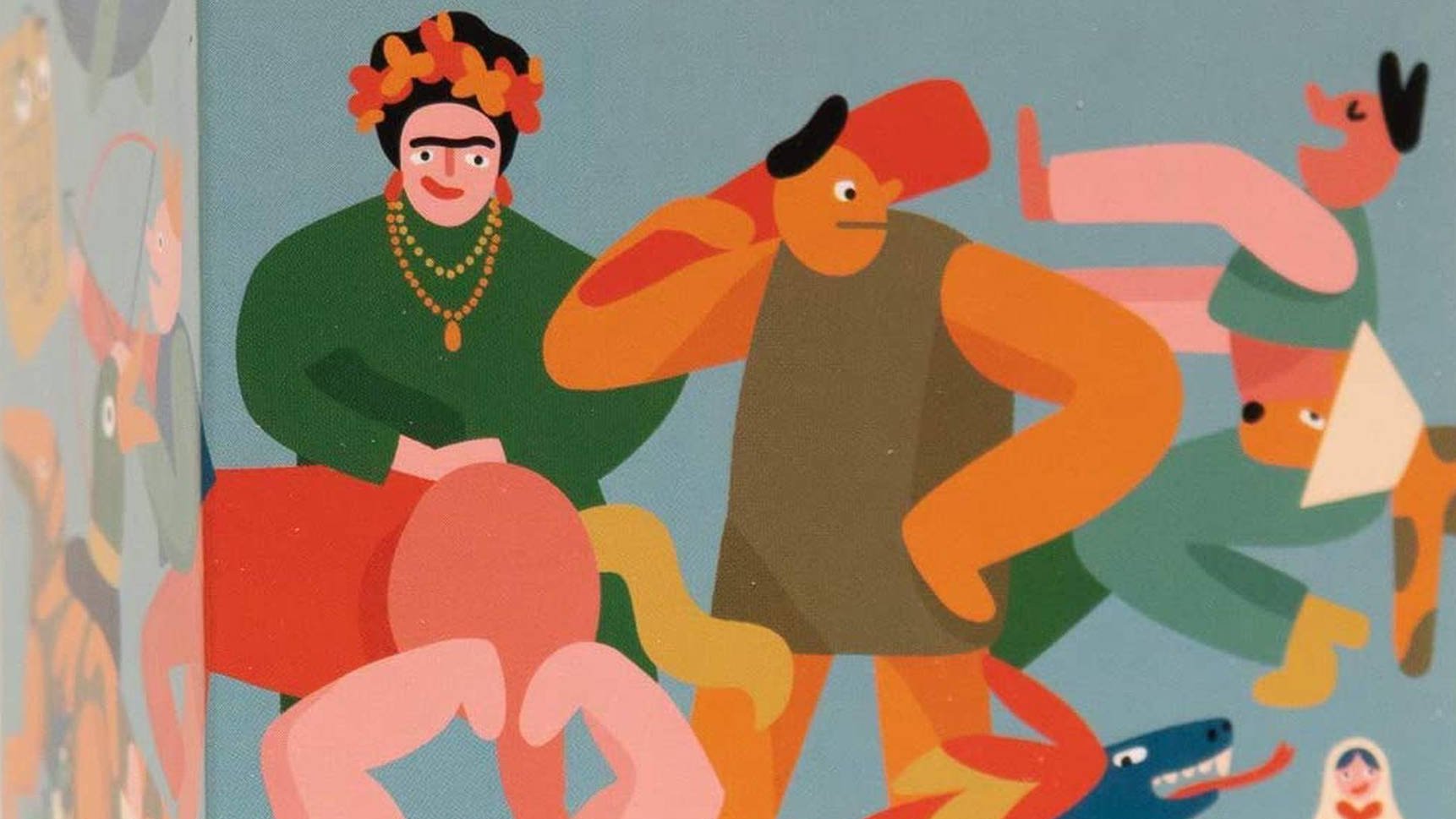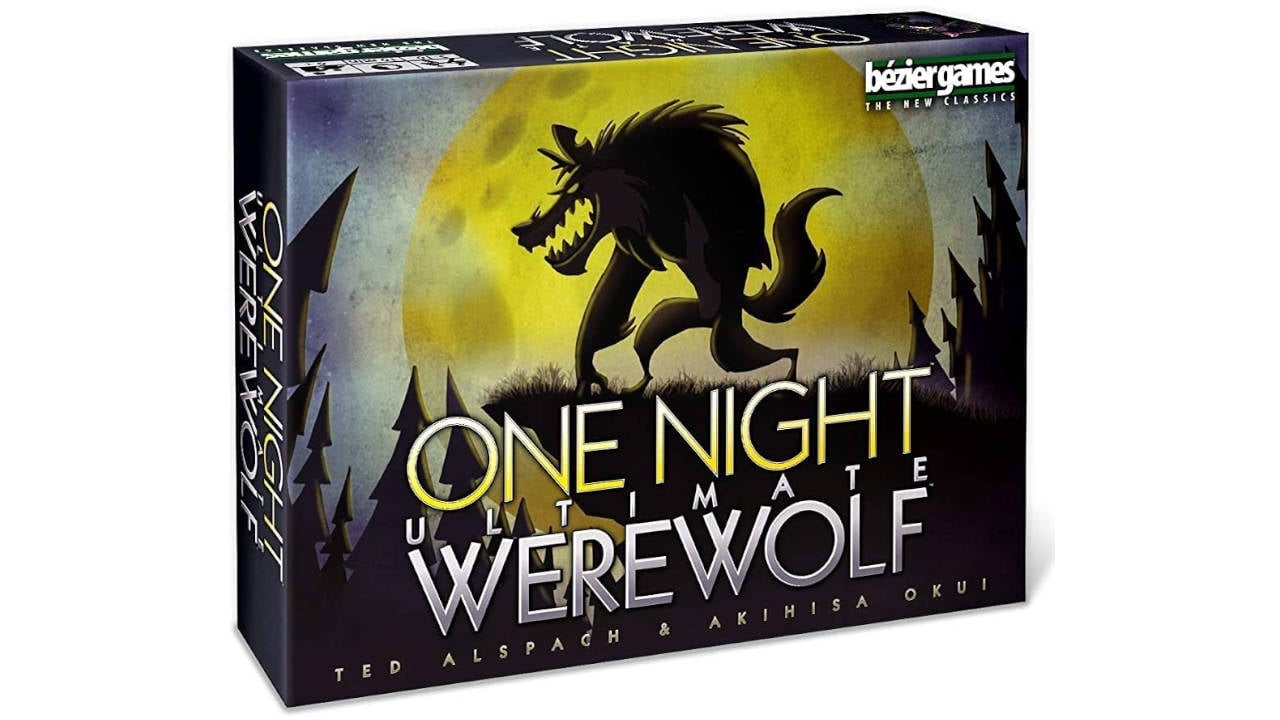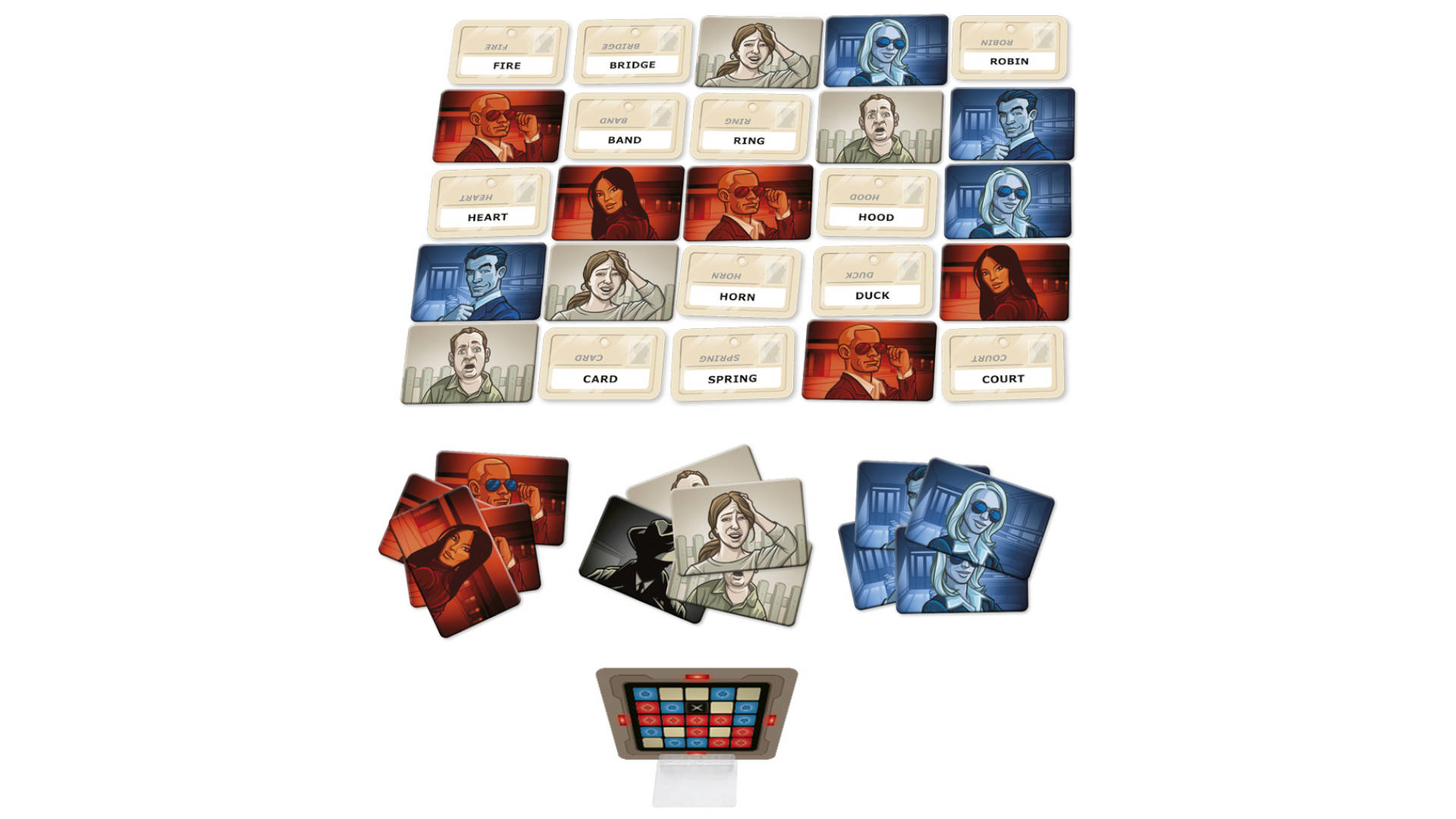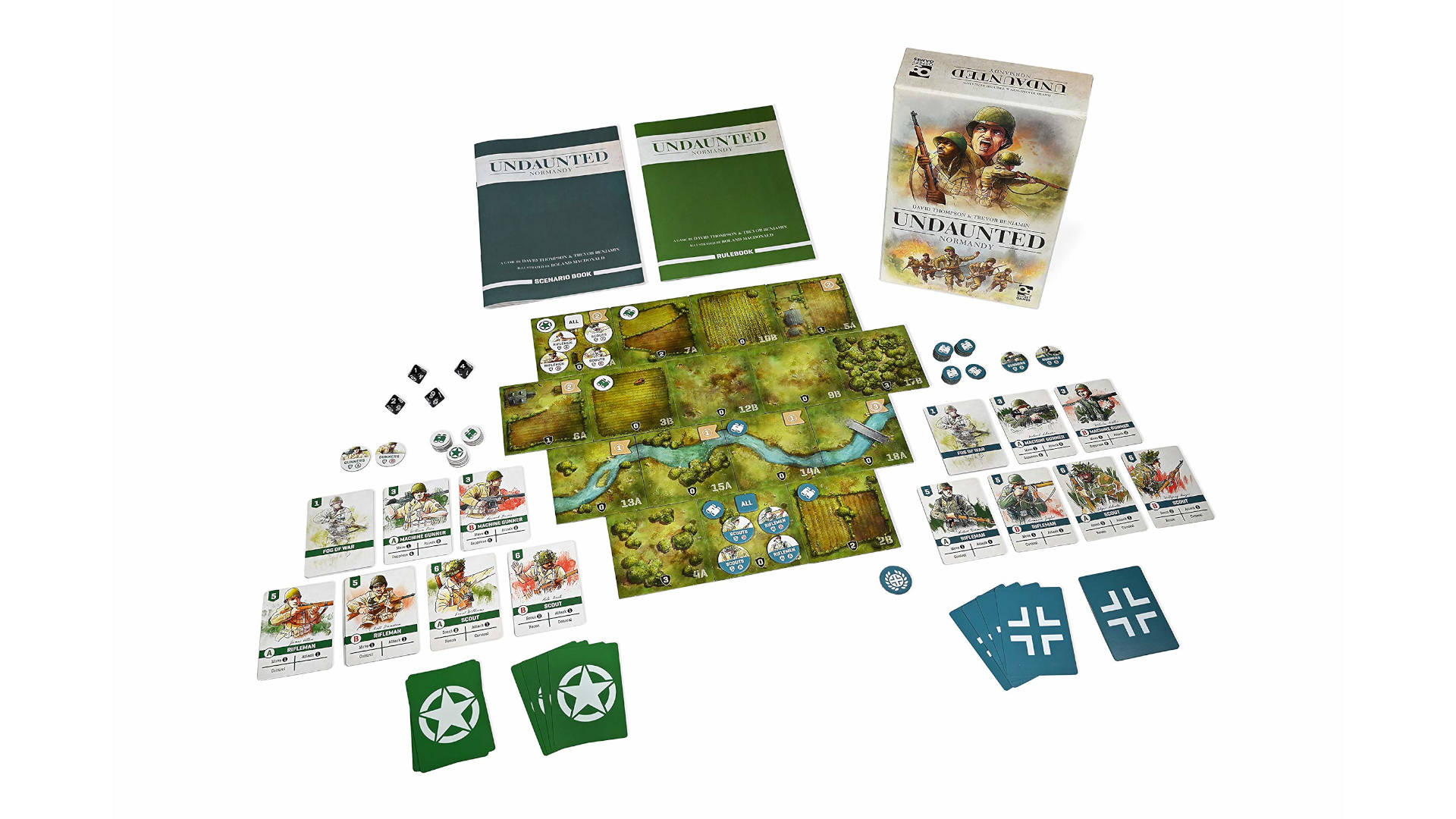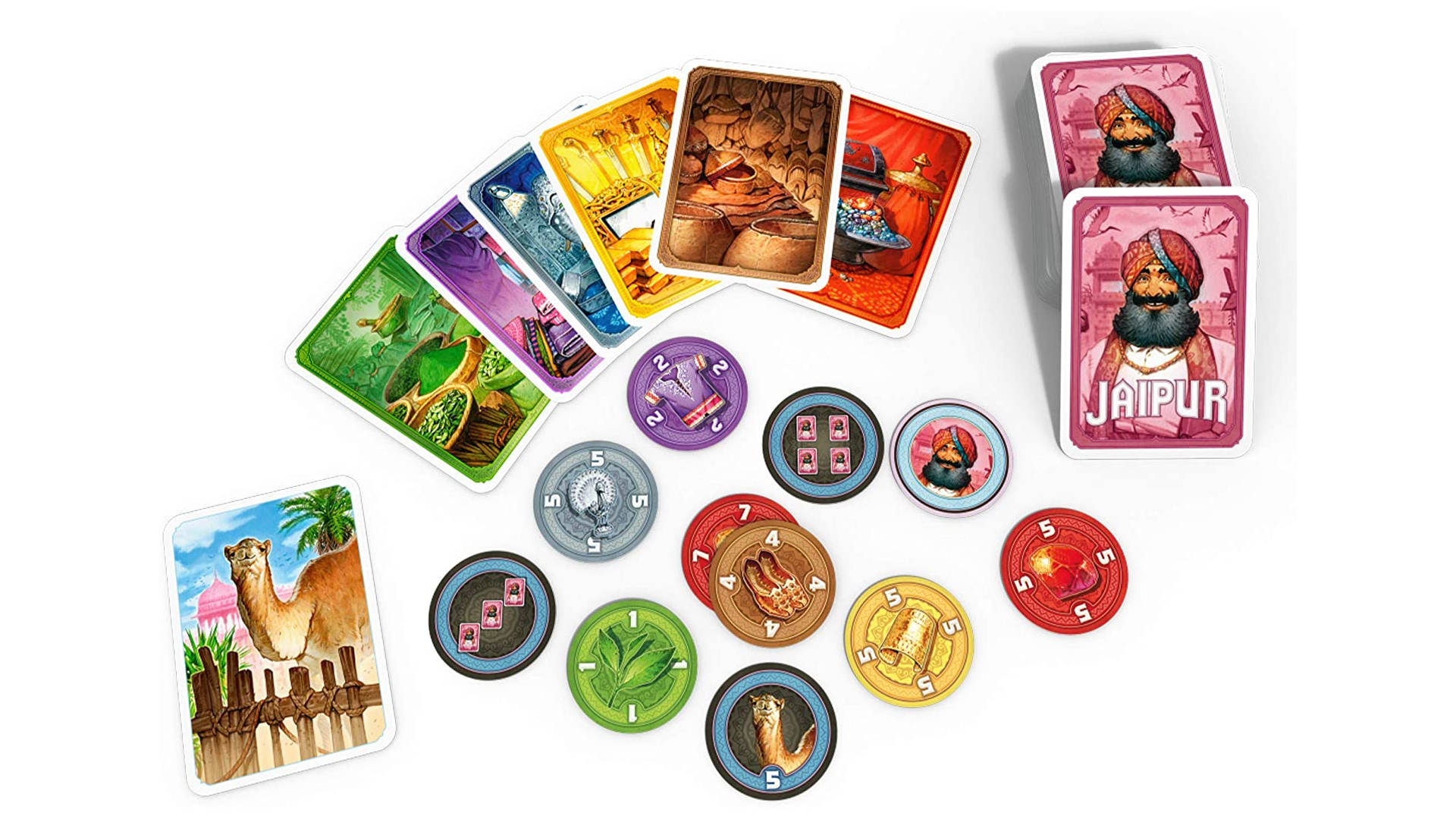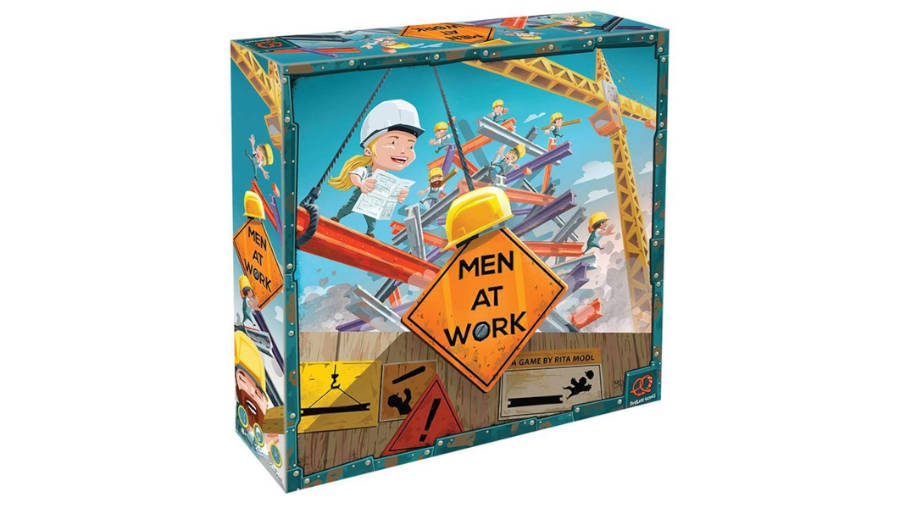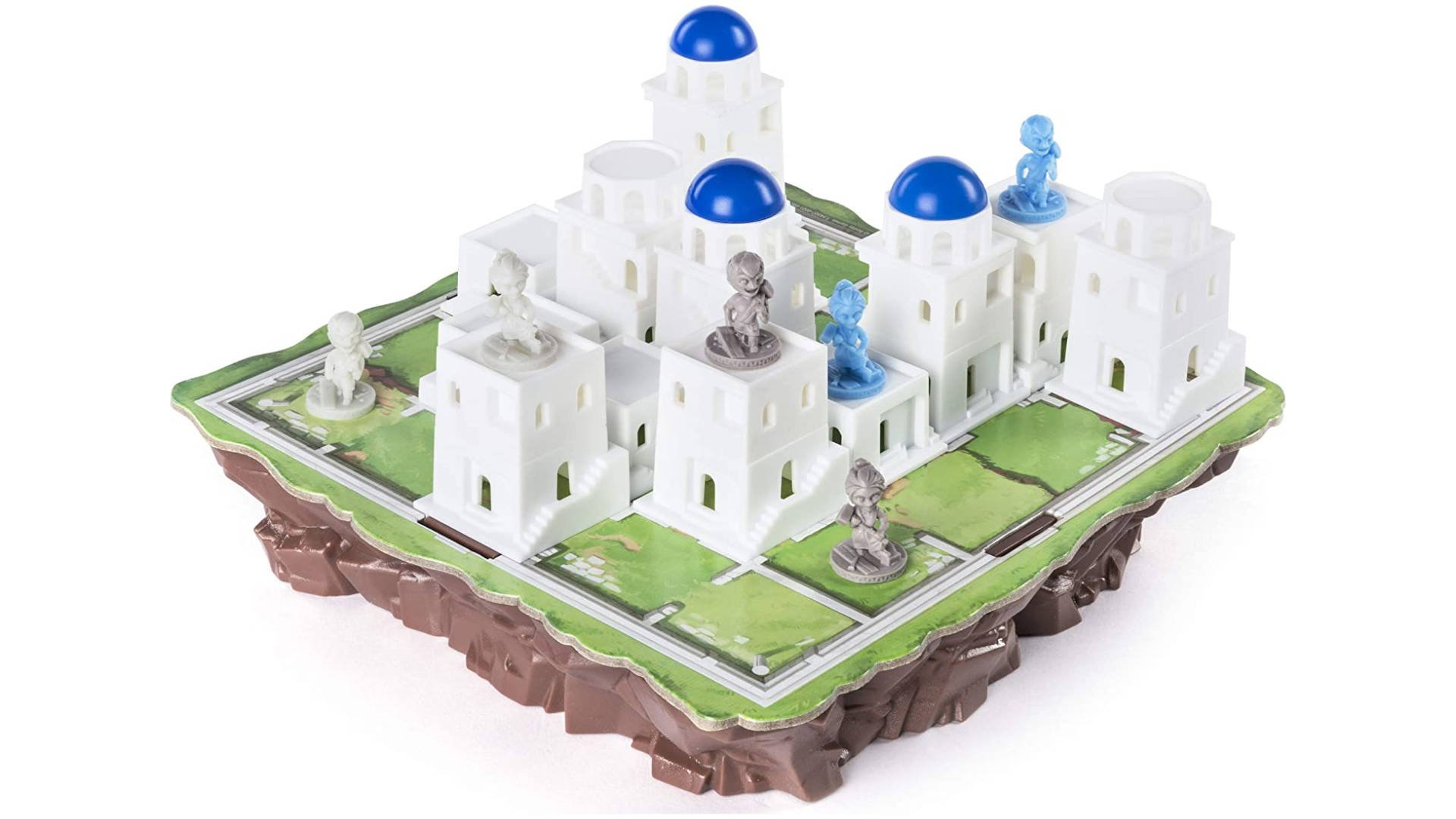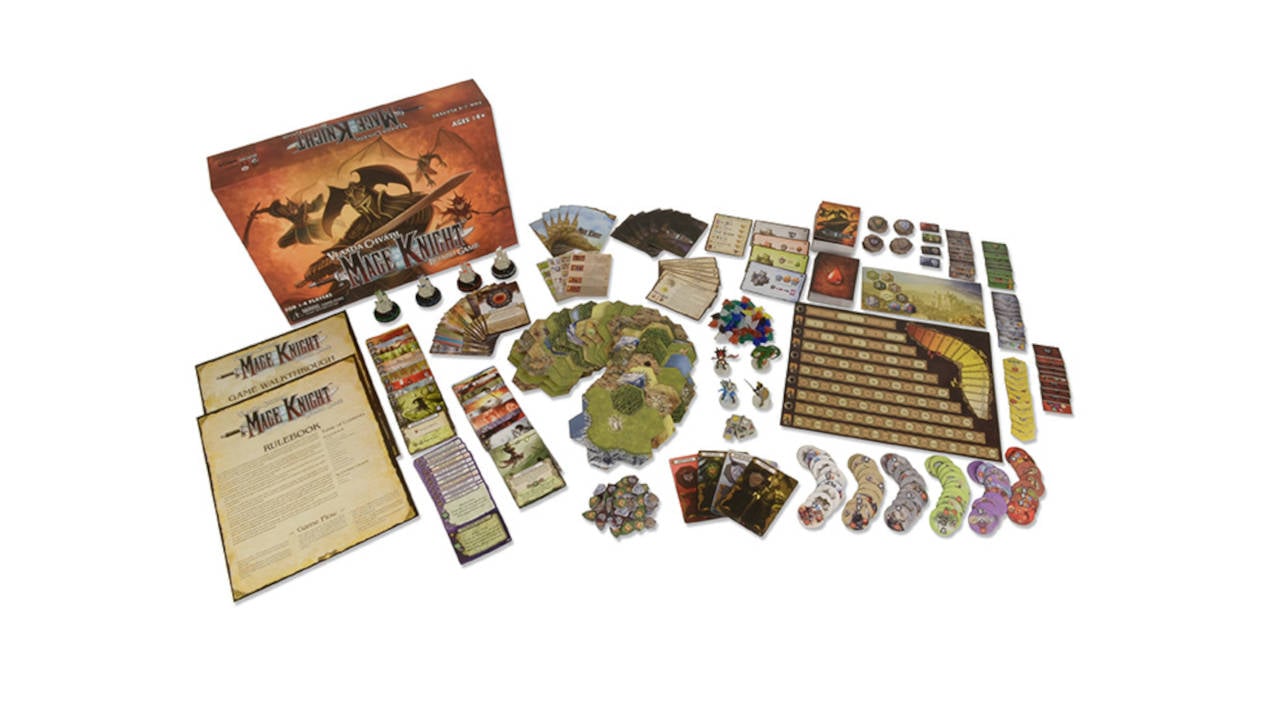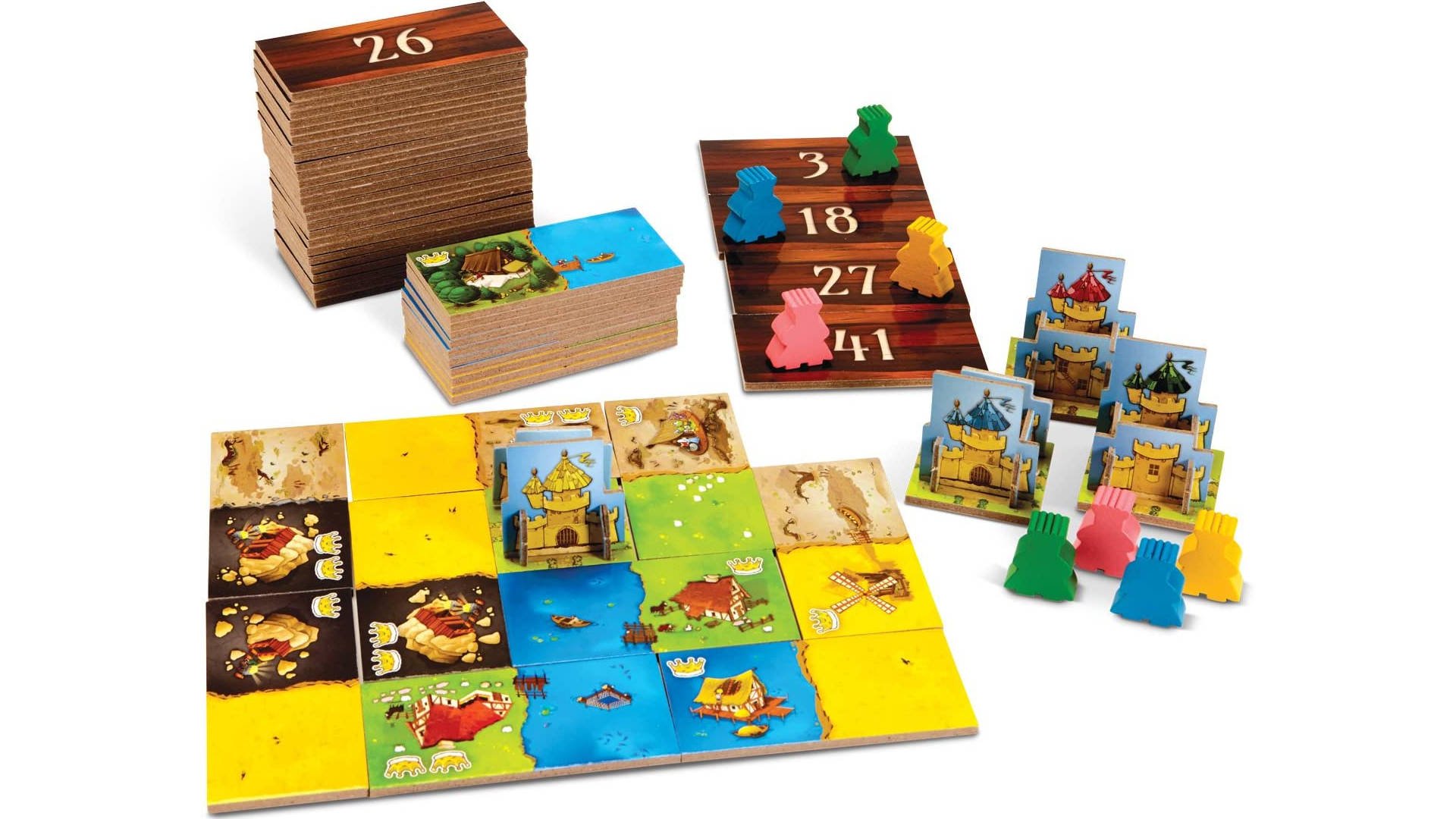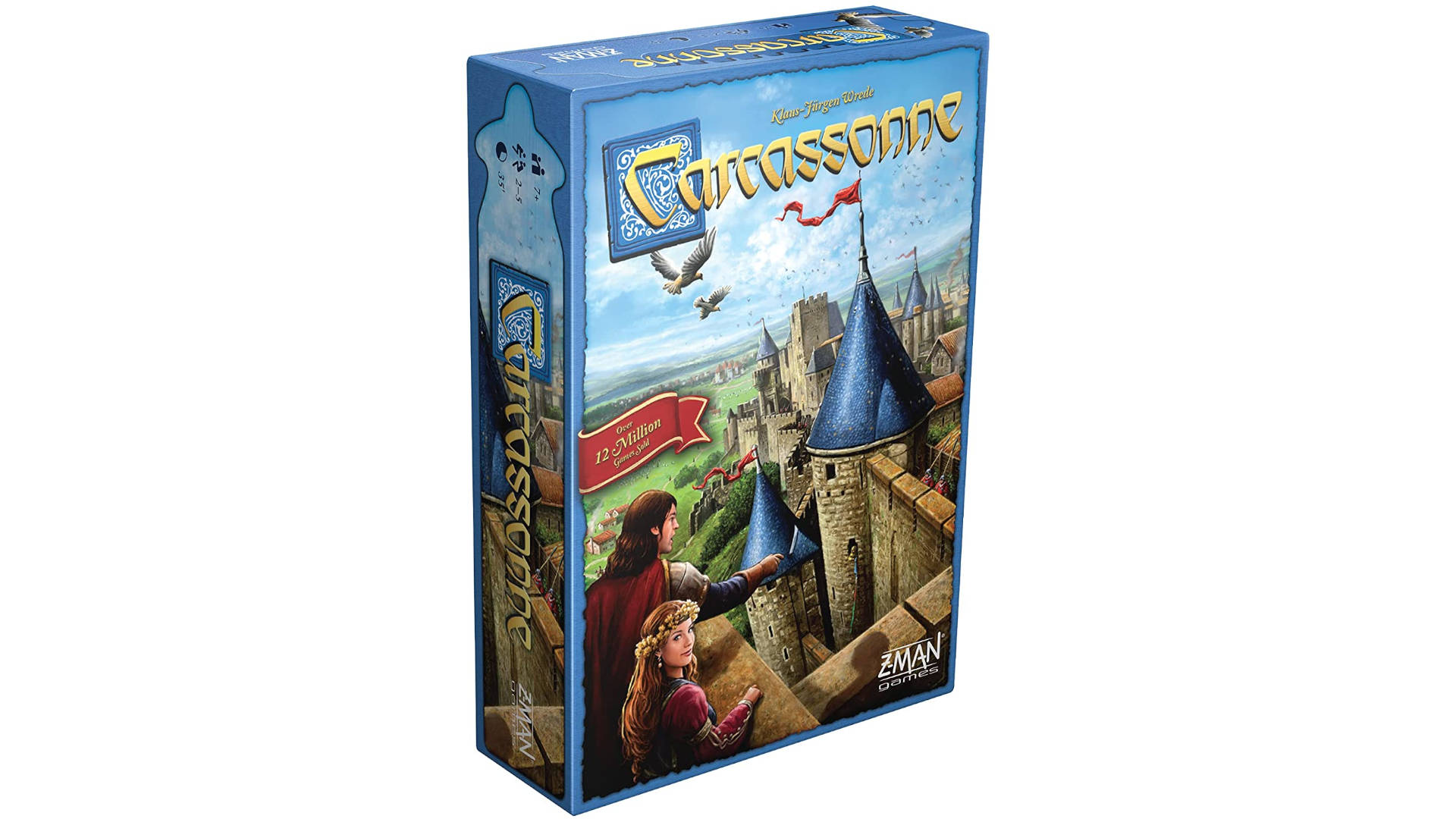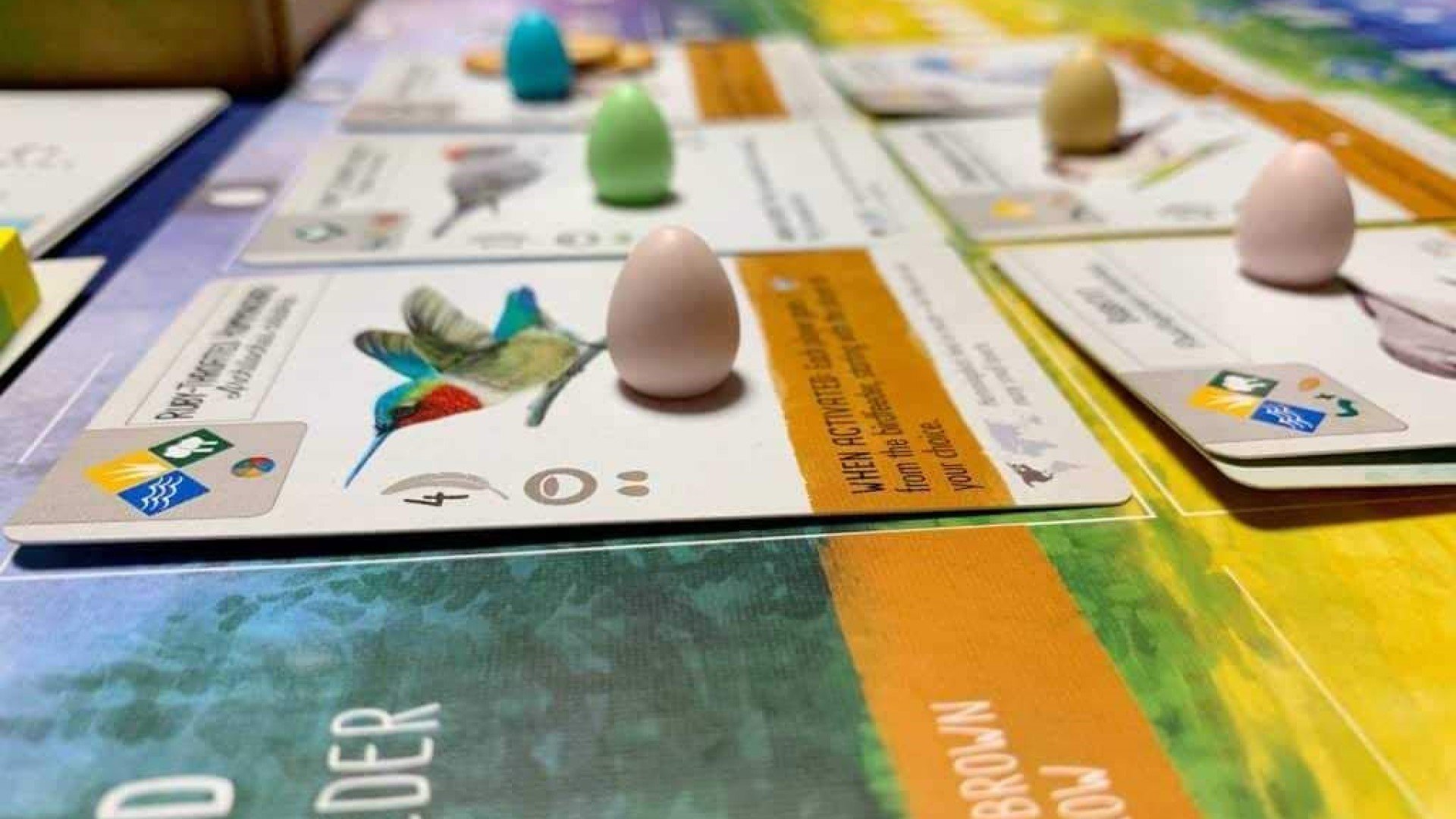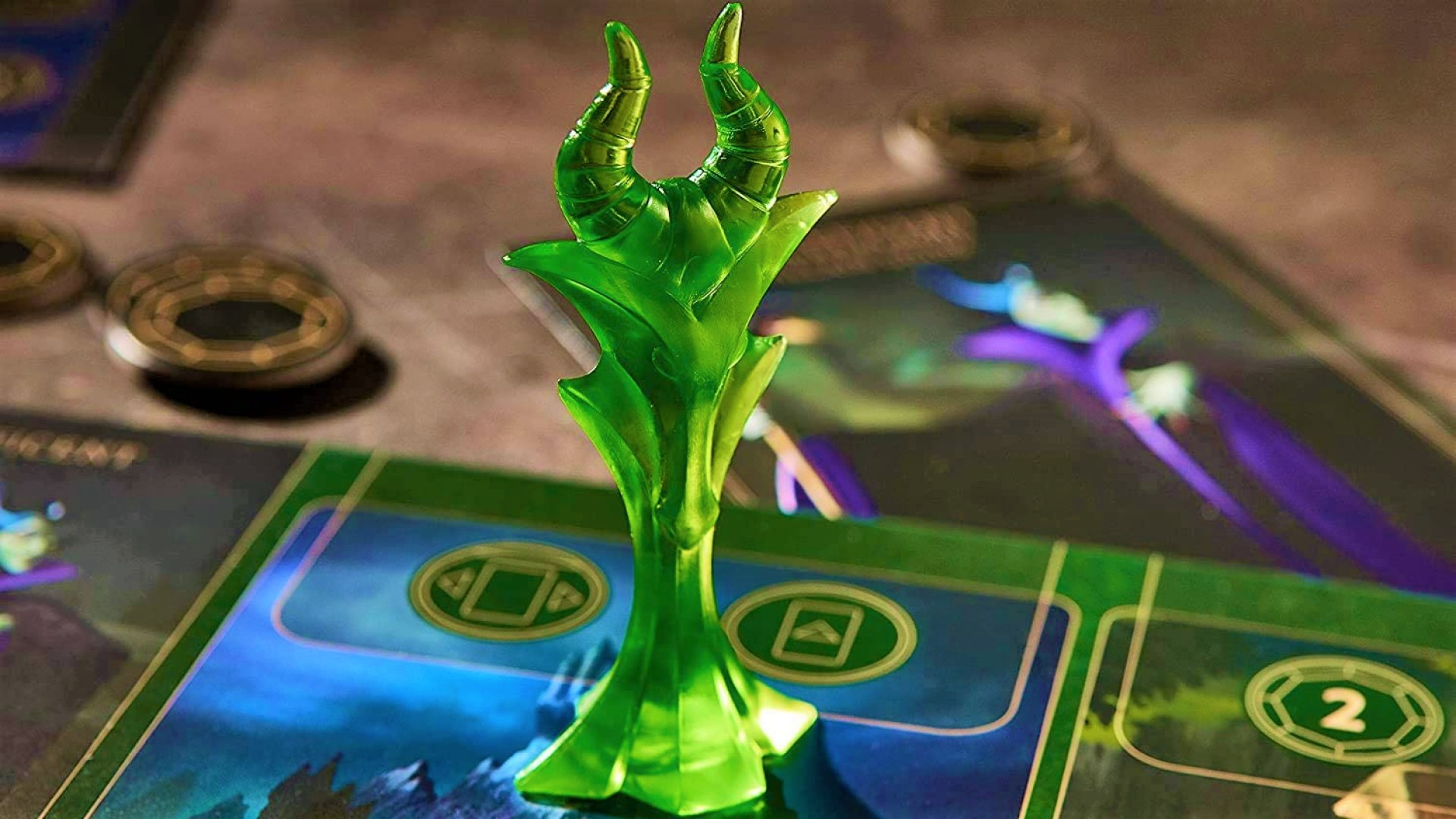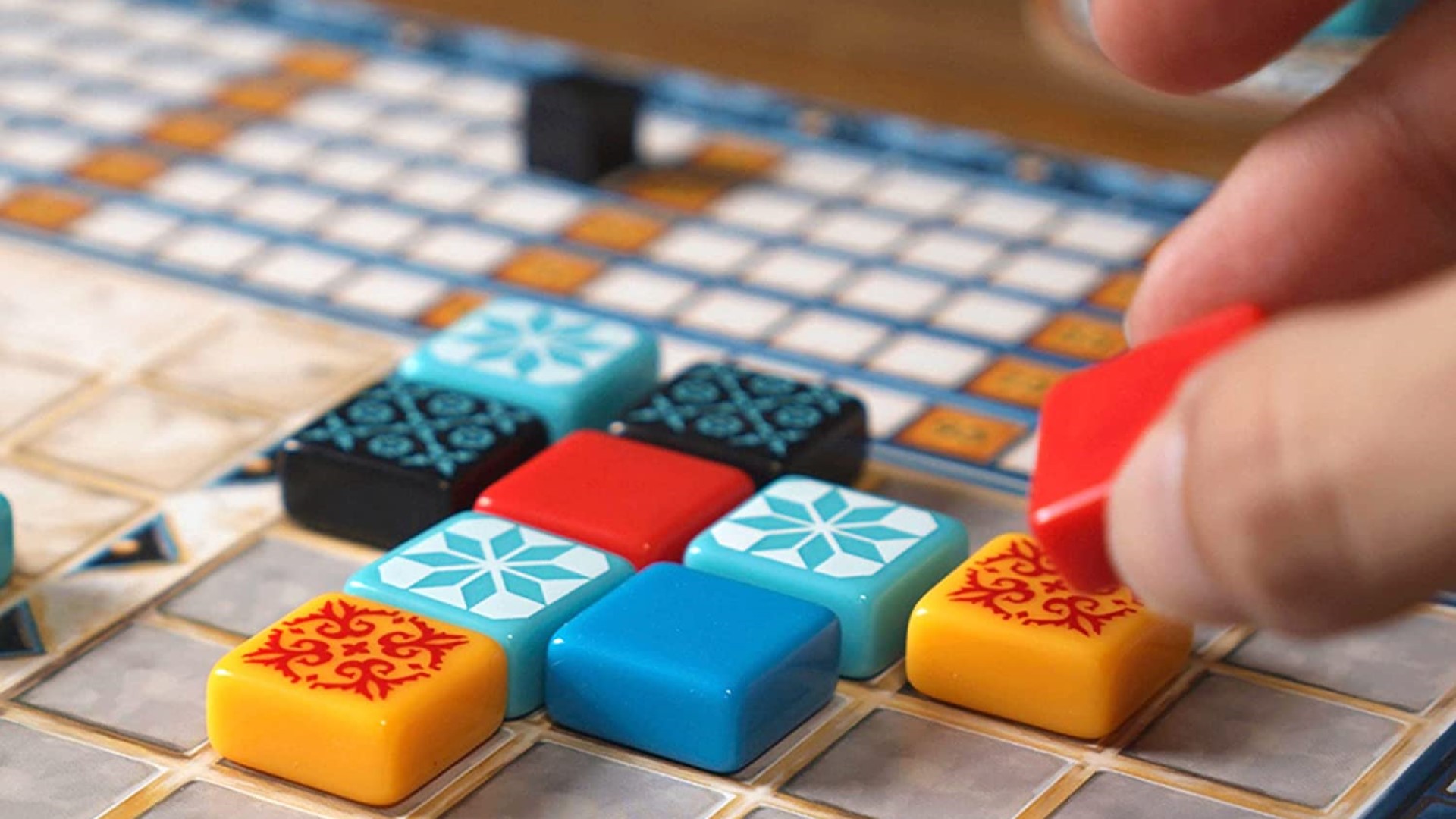What are the best board games in 2022? There’s never been more choice when it comes to picking what to play. Whether you’re new to the world of tabletop gaming, or have a first printing of HeroQuest sitting up in the loft, choosing a new board game can be a weighty decision.
To make things a little easier, we’ve scientifically crafted this unarguable, ultimate list of the best board games available in 2022. They’re all in print, reasonably affordable, and thoroughly enjoyable. Put simply, they’re definitely worth your time. Whether you’re after fun board games for party time, an epic strategy board game to whip out on marathon board game weekends, or a social deduction game to play with mates over drinks, you’ll find it all here.
These are the best board games 2022:
Gloomhaven
Few board games manage to capture the same level of undisputed reverence that Gloomhaven did when it released 2017. And even fewer manage to acquire such a surrounding mythos so quickly, or maintain audience captivation and critical respect for so long after their release. But Gloomhaven’s heady mix of tabletop roleplaying and tactical dungeon-crawling does so well to create a riveting adventure, that no other game has come close to stealing its mantle.
You’ll take on the role of an ambitious adventurer, journeying across the titular city of Gloomhaven and its surrounding fantastical land, with a party of fellow players. Cleave your way through dank dungeons, dense with bandits, monsters, and other horrors, while you journey through the game’s branching narrative campaign. The world is flavoursome and persistent, allowing you and your buddies to lose yourselves in its adventure.
While Gloomhaven boasts brilliant world-building and opportunities for roleplay if you would have them, its focus is on combat. Which, fortunately, is brilliant.
Players use class-specific decks of combat cards to manage attacks and movement across modular hex boards, leveling up their characters to unlock new abilities, and leveraging unique powers to cooperatively end whatever foe stands before them. In a nice twist, you’ll change characters several times throughout a complete campaign, retiring one adventurer once their personal quest is done, and immediately unlocking a new class with which to continue your expedition, armed with a totally new set of abilities and specialities.
But the game truly shines in its impressive level of refinement. Every scenario, every action, every class feels purposefully designed and complete. The game can be hard, but not unfairly punishing; rewarding but never anticlimactic. There’s a reason people haven’t stopped talking about it for the last four years.
Betrayal at House on the Hill
A co-op exploration game with a twist, the first half of Betrayal at House on the Hill, which players spend collecting gear, uncovering rooms, and finding strange and spooky curios, is all a leadup to ‘the Haunt’ – when a traitor is revealed, and the terrifying twist of tonight’s game is revealed. These events could be anything from a haunted amulet possessing a player to a cult ritual taking place within its walls.
The third edition of Betrayal at House on the Hill was released in August 2022. It has the same fun, B-movie horror feel as past versions, and the same variety of scenarios. However, it improves on many elements of the game, from a more gorgeous aesthetic, to more consistent mechanics, to better components. It seems creator Avalon Hill has paid attention to things that bothered fans and taken action, turning the third edition of the title into one of the best board games of the year.
With 50 different haunts in the game’s latest iteration (and more coming in expansions), you’ll be able to get plenty of plays out of this title. Though a few scenarios are clunkers, the majority will provide a barrel of laughs, scares (or both). Horror fans will also get a definite kick out of how the game plays with popular genre tropes. Read our Betrayal at House on the Hill 3rd edition review to find out more.
The Crew: Quest for Planet Nine
What would the search for a mysterious ninth planet sitting at the edge of our solar system look like? It might be filled with daring escapades, technological marvels, and intrepid explorers. But if it’s anything like the cooperative, trick-taking card game The Crew: Quest for Planet Nine, it would be exciting enough.
In The Crew, every player is dealt an assortment of numbered cards spanning five suits. Each round, players take turns placing cards in the centre of the table. Whoever plays the highest card of the appropriate suit, wins that round (or trick, if we’re using the correct lingo).
But, as this is a cooperative game, you can’t just go claiming any trick you want. Each player will be given specific tasks to complete, demanding they win tricks that contain particular cards. You might have to win a trick containing blue 5, while another player must win green 8. The game is all about the right players, winning the right tricks, at the right time.
Simple, so far, but the game’s real buzz comes from its restrictions: you can’t communicate with your fellow players. At all. Only once per game can you use a communications token to indicate the value and specificity of a single card in your hand. The rest of the time, you’ll be relying on cardplay to send hints to your compatriots, hoping their minds are sufficiently attuned to pick up your psychic signals.
And it’s this silence that makes The Crew so tensely enjoyable. Try to get into the head of your friends, and guess what they’re trying to tell you. Keep counting cards to assess whether you should grab your objective card now or later. Restricted information games always make for hilarious mishaps, but the Crew’s amazingly simple core concept and rapid-fire rounds make them all the sweeter.
Ark Nova
Planet Zoo the board game? Yes please. While it’s not the prettiest board game featuring animals, Ark Nova is perhaps the best. On the light side of eurogames, but more complex than most games with such a friendly theme, Ark Nova tasks you with building a zoo – setting up enclosures and filling them with beasties to rock up points.
When you’ve mastered bird keeping in Wingspan, Ark Nova will be waiting for you. It’s full of interesting decision making at every step, which really lends itself to the theme – as you play you really feel like you’re constructing something. And there’s all sorts of different roads you can go down, the customisation both helping to create a sense of ownership over your fine zoological establishment, and also boosting the game’s replay value.
While it has its naysayers, who critique it for a slight overreliance on luck, Ark Nova makes up for these foibles by being just plain fun. There’s a lot of hype behind this board game. Released by Feuerland Spiele in April this year, it swiftly rocketed up to the fourth best game on Boardgamegeek, with thousands of fans pouring in high ratings. An aquatic expansion looks to make a splash in 2023.
The Quacks of Quedlinburg
Let’s clear one thing up straight away: this isn’t a game about ducks, but fraudulent doctors. In The Quacks of Quedlinburg, players compete to brew the most valuable potion through fraught, push-your-luck bag-building mechanics. Randomly draw chips from a bag to add to your swirling cauldron, hoping for the most valuable picks that will increase the score of your brew. But fill your pot too quickly, and it might explode, leaving you with nothing to peddle at market.
While this exquisite family board game plays out across nine rounds, ‘fortune teller’ cards impose special rules that disrupt play, and certain chips give you additional actions.
Choose carefully when to add chips to your potion, and when to put them back in your bag – always trying to bolster your chances of drawing a high-scoring option, and to remove pernicious ‘cherry bombs’ that might explode your concoction. Keep track of what chips you’re drawing, and pay attention to the bursting seems of your pot.
The Quacks of Quedlinburg excels because of its near-perfect player information. Each player creates a set bag of chips, allowing you to keep track of your odds, and plan accordingly. With limited available actions on any one turn, and no overly demanding strategic depth, it’s a perfect family board game when you’re looking for something that will push your tabletop experience – but not drown you in mechanical detail.
Root
The best demonstration that deep strategy board games don’t need to rely upon historical realism, Root captures all the complexities and excitement of authentic wargames in a charming woodland theme. You’ll take command of a faction of cute critters in a bloodthirsty fight for forest domination.
The game has one standout feature: balanced asymmetrical gameplay. Its four factions are totally distinct, not only possessing different playstyles, but bespoke mechanics, turn operations, point-scoring, and win conditions.
Marquise de Cat has you amass resources to fuel your growing army, and manage area expansion; the Eyrie focuses on sporadic territory capture, demanding you refine its action economy; the Woodland Alliance fight through guerilla strikes, forcing you to plan and prepare critical moments of attack; while the Vagabond isn’t a faction at all, but a lone racoon ruffian that must backstab their way to victory.
Four disparate factions may appear overwhelming (and that’s before we’ve even mentioned the expansions), but it also means that you only have to learn one faction to play a competitive game of unexpected turns, and surprising machinations. Rather than heaping tons of esoteric rules upon every player to foster open-ended decision making, Root splits the load four ways. Your understanding of your chosen faction’s qualities will improve on each new match, and, just when you think you’ve exhausted its strategic depth, there’s three, practically brand new factions, open for exploration.
Root excels at taking the complexities of wargames, and making them accessible to more casual tabletop-goers. Actions are intuitively presented, systems visually understandable, and its charming woodland aesthetic is more inviting than the upteenth World War Two game. For the best strategy experience, choose Root.
Monikers
You might know Monikers by its other, license-free parlour game name, Celebrity. Players take turns describing and imitating famous people of history, cultural importance, or other noteworthy acclaim, while trying to get their teammates to guess the name of whichever star they’re emulating.
Essentially charades with a defined format, the game plays out in three, progressively harder rounds. In the first, you can use words to describe your designated person; in the second, you can provide only a one-word clue; and in the third, you can say nothing at all, instead resorting to rabid gesticulation. It means games of Monikers descend into silly mishaps and hilarious physical antics, while keeping things fresh.
But why bother with Monikers when you could just as easily write some names on scraps of paper and toss them in a hat? Because this marvellous boxed game streamlines and formalises the whole process for optimal fun.
Aside from handing you hundreds of ready-made cards with applicable figures, each comes with a handy description of the person, so no one’s forced to imitate a person they’ve never heard of. Also, at the start of each game, players will individually select which cards are used in the match, letting the group tailor the game to their preference. Like the best party games, it’s inclusive of everyone, and removes all moments of downtime.
One Night Ultimate Werewolf
One Night Ultimate Werewolf uses the core formula of imposter games – a group of players must collectively figure out which among them are traitors – and condenses it into a bitesize, fifteen-minute, nail-biting match. Players are randomly assigned hidden roles, but a couple of them won’t be the harmless villagers others take them to be. Rather, they’re werewolves that must be rooted out of town.
The game is split into two phases. During the Night, players take turns performing the actions of their specific role. The werewolves reveal themselves to each other, the seer can peek at another’s role card, the troublemaker swap two players’ cards without them realising, the robber steals another’s role, and the drunk takes on a brand new identity.
But it’s in the daytime that things heat up, as players convince each other they are not the werewolf. Navigate all the hidden card-switching of the night to identify the real threat, or the werewolves will win by morning’s end. Discussions are tense, and persuasion not guaranteed. You might struggle to convince your fellow players that you’re not the hairy menace they think you are, only to later find someone switched your card, and you were the werewolf without even realising it.
With no player elimination, and just one round of gameplay, no players are left sitting on the sidelines. Speed of play, mixed with shifting hidden information. makes it a great party game, for those times when you want to angrily accuse your friends of being bloodthirsty lycanthropes.
Codenames
A word association game that encourages buckets of creative play, Codenames casts you as a secret agent, attempting to communicate to your partner the location of compromised field agents through that historic staple of spycraft: single-word clues. Split into two teams, the designated Spymasters from each side take turns providing clues to their teammates, trying to indicate which of the cards laid out on the table in front of them represent the locations of their compatriots.
Cards are arranged in a grid, and each labelled with a single codeword. Spymasters know under which cards lie their field agents, which are neutral civilians, and which covers the deadly assassin, that, if revealed, would cause an instant loss.
But the race is on. You’ll need to hint at multiple cards with a single clue, linking them together through whatever tenuous secret connections you can muster, if you’re to uncover all your agents before the opposing team. Provide too specific a clue, and the enemy team will beat you to the punch. Stay too vague in your hinting, and you risk being misinterpreted.
Codenames is easy to pick up, and its fundamental concept of word association intuitive to new players. But its scope for silliness quickly spirals, as you overreach your clue-making in daring plays that might result in catastrophe – or sheer brilliance. Test how nebulous you can be, and just what ingenious linkages you might be able to draw.
Undaunted: Normandy
With all the tactical depth of a wargame, served in the fast-flowing mechanics of a deck-builder, Undaunted: Normandy is a cut above the raft of WW2 games available. One player takes the role of the Germans, and the other the Americans, as both lead squads of infantrymen across a modular board, attacking enemy forces and securing objectives to fulfil the specific win conditions of each scenario.
Rather than using miniatures and dice-rolling, Undaunted hands you an action deck to operate your squads of riflemen, machine gunners, commanders, and more. Each round, you’ll draw four cards with which to command your forces. But as you take new territory, obsolete ‘fog of war cards’ will fill up your deck, impinging your chances of a good draw. And as you engage the enemy, casualties will mount, encouraging you to reinforce your troops with new cards from your supply, and pick off enemies to dwindle their forces.
Simultaneous deck optimisation and tactical squad manoeuvrings make for tense skirmishes, where the balance of battle can quickly be upset, and the merits of forward-planning versus immediate assaults are always shifting. Mix in well-constructed scenarios that foster specific strategies, but encourage creative plays, and you have a game that’s not only barrels of fun to play, but one that’s eminently replayable, too.
Undaunted might have the look of a dumbed-down wargame, but don’t be deceived by its colourful illustrations. While combat systems, such as range, cover, and weapon specialisations are simplified, their fundamental tactical relevance is retained. This is a wargame that’s brilliant because of its streamlined design, not in spite of it. Plus, if you want more battles to fight, it’s now got two excellent expansions: Undaunted: North Africa, and Undaunted: Reinforcements (not to mention the upcoming sequel).
Jaipur
Simple to set up and easy to play, don’t let Jaipur’s jolly artwork lure you into a false sense of security. Behind its colourful cards lies one of the best 2-player board games of push-your-luck trading. Buy, exchange, and sell goods to raise an investment portfolio, and earn the praise of the Maharaja.
Like the stockbrokers of today, players only have two options available to them on any turn: buy or sell. Pick up and exchange cards to increase the assets of your hand, or take all of the point-scoring camels, if you fancy them as a more profitable avenue. But be sure to sell all your stock on later turns, transferring your winnings into dosh. The player with more money by the game’s end is declared victorious.
But, like all financial institutions, the market isn’t stable. The value of goods decreases as the game progresses, prompting you to unload your hand as quickly as possible. But, since you get bonus rewards for selling multiple goods of the same type at once, you’re also encouraged to wait, stack goods, and try to fetch a higher total price.
The push-pull duality of buying or selling, waiting or acting, creates a perpetual rhythm to the game. A paucity of turn operations makes it decidedly straightforward, but its contradictory incentivisation of greed and miserliness makes for fraught decision making.
Men at Work
Not all board games are about mental calculations, gaming probabilities, or demanding cognition. Many ditch the mind in favour of the hands, requiring you to touch the game pieces, and physically manipulate them to win. Such dexterity games are often targeted towards children, but that doesn’t mean tabletoppers of all ages can’t join in on the physical fun.
And the very best of these games is Men at Work. Aping Jenga’s tower-building premise, players take turns placing girders and affixing supports to a central structure, careful their precarious placements aren’t so unsound as to bring the tower toppling down. If you can increase the total height of the structure, you’ll be rewarded a shiny ‘Employee of the Month’ token, and be well on your way to declaring yourself Architect Supreme.
Men at Work’s variety of game pieces make it a blast. Beginner girders are stable, but often unwieldy, and worker meeples that must be placed on top of them don’t make for easy geometric arrangement. Add in some tiny bricks and beams to be balanced on their shoulders, and it soon becomes clear why your tower appears more like a rushed development than a premium property.
It’s anxiety-provoking and tense, but also heaps of visually-gratifying fun. After all, as anyone who’s ever built a sandcastle too close to the sea will tell you, there’s few better simple pleasures than painstakingly constructing something, only to destroy it moments later.
Santorini
A holiday to the real Greek island would probably make for a more romantic escape, but when you’re locked indoors, the Santorini board game is a fantastic option. This head-to-head 3D puzzler is super simple, and calls upon all the tactical nous you’re willing to give it. The best couples’ board game around, it’s a great pick if you’re looking for a light game that’s constantly engaging.
Each player controls a pair of jolly labourers. Move them around the small gridded board, and build glimmering white towers, one block at a time. But this is no architectural picnic. The first player to build a three-story tower, and stand atop their creation will be crowned the winner. Place a dome over any completed tower to prevent your opponent from reaching its summit, forcing them to start all over again.
Santorini’s visual gameplay makes it perfect for anyone new to board games, or unaccustomed to the usual tropes of the hobby. Plus, straightforward rules make it a blast for couples who don’t fancy spending their evening reading a rulebook.
After you’ve played a few matches, try using the included ‘god cards’ to spice up the game. Each player takes a card, and is granted a special ability, such as a new way of moving their workers, or a construction advantage. With nearly 30 cards to choose from, the game will be different every time you play.
Mage Knight
You won’t always have an enthusiastic group of friends around to satiate your board game needs. Sometimes, you’ll have to venture to the tabletop alone. But that doesn’t mean you should settle for B-tier titles. There’s a raft of fantastic single player board games aimed at solo players, and the best among them is Mage Knight.
A tactical deck-builder, Mage Knight has you combine an array of spells, attacks, and manoeuvres into an action deck, before throwing you down a dark dungeon. Play cards to defeat enemies, and combine their effects in glorious volleys. Optimisation is the name of the game, as you prioritise speed and precision in each encounter.
Although it can be brutal and unforgiving, nothing about Mage Knight ever feels cheap. Its rules are meticulously crafted, and the synergies between its action cards refined. Be prepared to keep that rulebook handy, though. With a plethora of abilities and modifiers, its systems can be a little thorny. But when you’ve mastered it, you’ve got a real treat on your hands.
Even better, Mage Knight can be played with up to four players. So, once you’ve mastered the game, take it round to a friend’s place for some dungeon-crawling fun. But we think the game is at its best when played solo: giving you all the time you need to scrutinise the many actions at your disposal.
Sushi Go Party!
Take a seat at a vibrant sushi restaurant, and choose the most delectable items on the menu. But be quick. The other patrons are fast to order, and might snap up the tastiest treats before you can fill your plate. If you can grab the best sushi set, you’ll come away as the winner, with all the wasabi-smothered edamame you could hope for.
Sushi Go Party! is a board game of constant energy. On each turn, every player picks a piece of sushi from their hand to keep for themselves, before simultaneously revealing their choice, and passing their leftovers to their neighbouring player, ready for next pickings. You’ll be looking to collect specific sushi, and complete pre-determined sets for a high score. Maybe you’ll want to nab some quick points with a nigiri, or hold out for three sashimi to secure a windfall.
With cards passed around the table each turn, you’ll need to keep track of what sushi is still available. You’d hate to start collecting tempura, only to find the player opposite has taken the last one available. Keep your eyes on your opponents’ plates, too, and be ready to nick whatever item they’re after.
While the original was fantastic, Sushi Go Party! adds even more content to the mix. More cards, with more actions, and even more menu combinations keep things fresh every time you play. Plus, its artwork is gorgeously cute. Who knew that a smiling dumpling could look so good?
Kingdomino
Despite what the price tags of some board games might suggest, the tabletop hobby isn’t only for adults. In fact, there’s an enormous supply of fantastic board games for children, while extending beyond the dull dice rolling of monotonous monopoly. And Kingdomino is the best kids’ board game of them all, combining simple tile placement with hedge-your-bets point-scoring.
On your turn, you’ll pick up a double-sided domino tile, and match one of its ends to a territory type in your personal medieval kingdom. Keep adding tiles to create a five by five grid, while trying to grab as many point-scoring crown tiles along the way, and creating the neatest realm of them all. But it’s not all greedy point grabbing. On each turn, the player with the fewest points in their kingdom goes first, incentivising you to rein in your expansion, so as to get first pick next time.
You’ll be balancing this short-term gain against long-term reward, while trying to scupper your opponents. Pick the tiles that will expand your kingdom, while denying your friends the vital piece they need to complete their grid. Maybe you’ll be super competitive, and sacrifice your own growth for the sake of completely stalling your opponents’.
Kingdomino’s intuitive, visual gameplay makes it a treat for younger players, who can enjoy arranging tiles into the best patterns. But it also leaves room for older kids, encouraging forethought and planning, as well as a (friendly) competitive element. A must for all kids keen on board games, as well as parents who want a game that will keep their children entertained again, and again.
Carcassonne
A true classic board game, Carcassonne remains a staple of any collection. For over 20 years, board gaming enthusiasts have been playing this charming tile game, and building their own medieval french kingdoms across the tabletop. It’s straightforward, fairly quick, and does a grand job of introducing you to many elements you’ll find in other games, making it a fantastic pick if you’re new to the board gaming hobby.
In Carcassonne, you’ll take turns connecting square tiles together in the middle of the table. These aren’t just any tiles, though. They’re illustrated with segments of roads, fields, and castles that must be correctly joined together to create a coherent picture. All the while, you’ll also be placing down ‘meeples’ to claim various areas of the board for yourself.
Think that castle is shaping up to be a big one? Stick your meeple on it to score big points when it’s completed. Fancy nabbing that long road your opponent has just built? Whack down a couple of meeples to muscle them out.
Part of Carcassonne’s charm is its brilliant visual and physical gameplay. Being able to see the game come to life as you play, and chart the course of the gorgeous medieval world in front of you keeps even the most impatient of players engaged. Plus, it scales well at higher player counts, and is just as fun for two players as it is for five.
Wingspan
A board game so famous it had a guest spot in a soap opera, Wingspan is firmly nested in many ‘best board game’ lists. It’s one part gorgeous ornithology encyclopedia and one part crunchy engine-builder. This means it’s a game you could easily put in front of your most seasoned board game group and your most inexperienced family members.
In Wingspan, three to five players become bird enthusiasts aiming to attract more beautiful (and powerful birds). You do this by drawing and playing different bird cards, rolling dice to collect food, and laying eggs.
The aim is to create the most powerful chain of birds over four rounds, as well as score extra victory points through various end-of-round goals.
Eggs, food on cards, cards tucked away, and bonus cards all contribute, so there’s plenty to think about if you want to win. Of course, you could always just sit back and enjoy the beautiful bird art and neat trivia instead.
Disney Villainous
Licensed board games often end up disappointing hardcore board game lovers, but Disney Villainous is a gem for newcomers and veterans alike. However, you’ll probably need to be a big Disney fan to make the most of this game.
In Disney Villainous, each player controls six iconic Disney villains. You’ll have your own unique win condition to fulfil, and doing so means moving your villains around the board and playing items, effects, and allies from the Villain cards in your hand.
Whether you’re trying to defeat Peter Pan at the Jolly Roger or collect 20 power tokens, you’ll need to keep a close eye on your opponents’ progress as well as your own. After all, only one villain can be the top dog. This is a relatively short game, but it’s one that’ll keep you on edge as you and your friends begin gleefully sabotaging each other’s success.
If you’re looking for something more specific, check out our individual genre guides. We’ve picked out the best board games across various categories, so you can find that perfect game to add to your collection.
Azul
Azul might be the most soothing strategy board game we’ve ever played. While there’s plenty of in-game planning to wrap your brain around, the thoughtful gameplay and gorgeously tactile tiles mean Azul very much deserves its 2018 Spiel des Jahres win.
Players are tasked with creating grand mosaics for the King of Portugal. On your turn, you pick up all of a specific tile type found on one of five ‘factory’ spaces in the centre of the table. Then you decide which horizontal line on your personal game board to place them on. There are limits to where you can place tiles, as well as penalties for grabbing more tiles than you have room for, so you’ll need to plan your mosaics carefully.
We’ve played a fair few of Azul’s spin-off games by now, but the original remains our firm favourite. If we had to pick a second favourite, though, we’d recommend 2022’s Azul: Queen’s Garden. Here you’ll be drafting and building regal hexagonal gardens, scoring points for your choice of flora and fauna as well as tile colours.
This keeps the exciting tile-drafting gameplay of Azul, but mixes things up with new tile-laying and scoring systems, adding a zesty pinch of extra complexity into the mix.
Find the best:
Source: Wargamer



